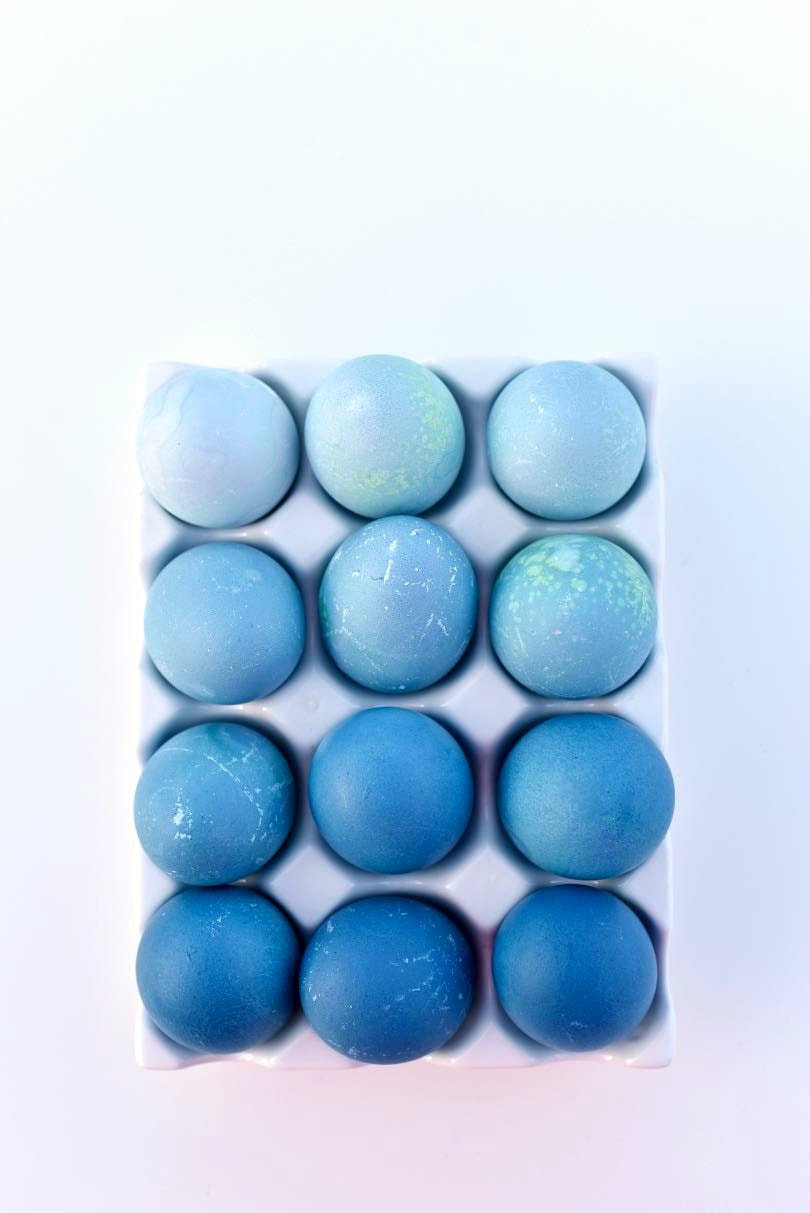
How to dye eggs with red cabbage for Easter Make Life Lovely
While the eggs are cooking, prepare the red cabbage by chopping it up and putting it in a large pot with 4 cups of water. Bring the water to a boil and let it simmer for 15 minutes. After 15 minutes, I took it off the stove and let it cool. Once the cabbage was cool, I took it all out, leaving only the liquid behind.

How to Dye Eggs With Onion Skins 11 Steps (with Pictures)
Strain the liquid. Add 1 tablespoon of vinegar for every 1 cup of dye. Stir. Add room temperature boiled eggs to a bowl, pour cooled dye over the eggs so that they are completely covered with the dye. Place eggs (in the dye) in refrigerator until your eggs have reached the color you want.

Last minute Easter Eggs that are stunning and colored naturally how
Get the details below! Supplies for One Batch of Blue Dye: - 1 head of red cabbage, chopped. - 4-5 cups of water, dependent on the size of the cabbage head. - 1 to 1 1/4 Tbsp white vinegar. - baking soda, optional. - eggs to dye. - big pot, colander, cups for dye, towels. Toss the chopped cabbage into a large pot with the water.
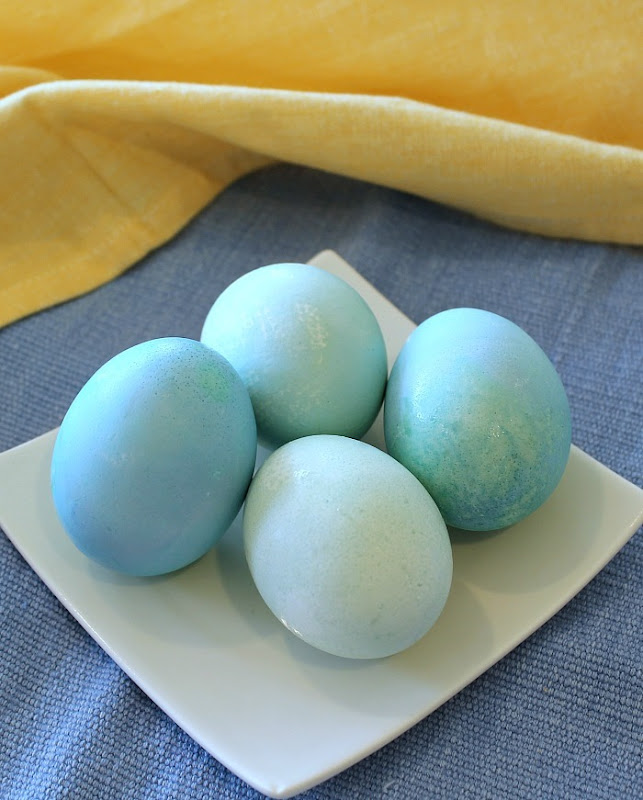
homework a creative blog CELEBRATIONS Red Cabbage Dyed Easter Eggs
Boiling the cabbage in water yields a bluish-purple liquid called purple cabbage indicator that changes color depending on pH. Raise the pH, and the cabbage water turns from purple, to blue, to green, to yellow. Lower the pH and it turns more of a magenta color. This cup has citric acid before adding the cabbage liquid.

Naturally Dyed Easter Eggs (with Onion Skins & Cabbage) Our
For blue dye: Take 1 large red cabbage (about 1 pound) and shred it. Combine in a saucepan with 1 quart water, 1 tablespoon vinegar, and 1 tablespoon salt. Bring to a boil, then cover and simmer 30 minutes. Strain, reserving the liquid for dyeing. To dye the eggs: Simply soak them in the liquids until they are the desired colors.
Faster Kittykill! Blog! Blog! Natural Dye Easter Eggs
It's Easy Dying Eggs with Red Cabbage - makes beautiful blue Easter eggs, naturally dyed without harsh chemicals.Another recipes you will love:Dyeing Eggs wi.

I dyed these with red cabbage Red Cabbage, Easter Eggs, Fruit, Food
Add 1 tablespoon of vinegar per cup of dye and stir throughout. Allow the dye to cool before you use it. Place the blue cabbage dye into a wide mouth glass jar. Carefully lower the eggs into the jars using a tablespoon. For lighter blue eggs, soak the eggs for 4-6 hours, and remove when you are happy with the color.
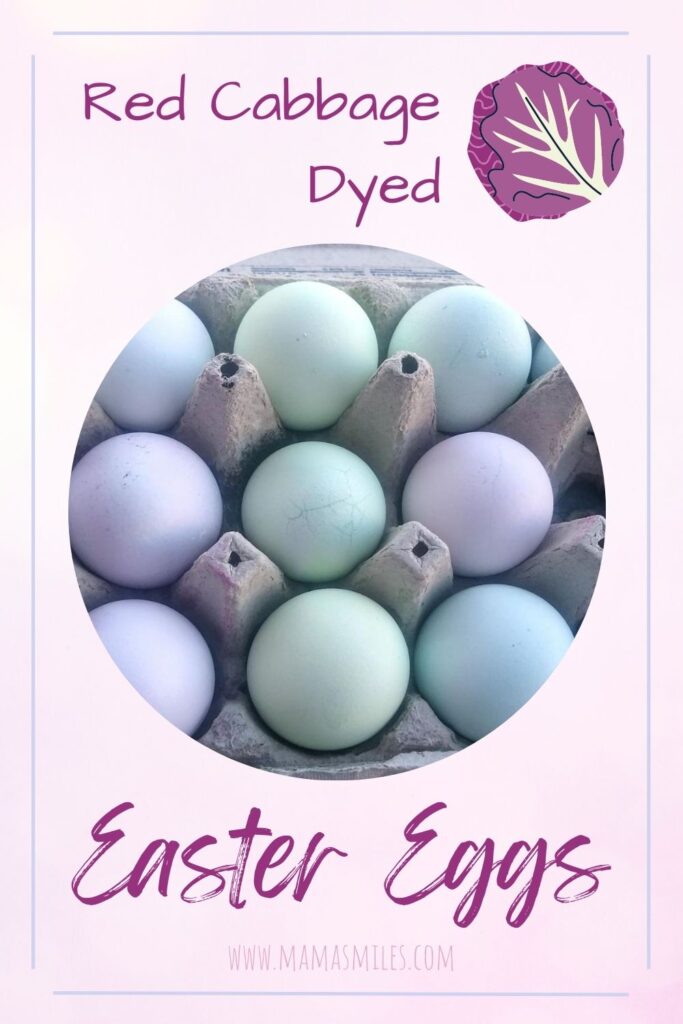
How to Dye Eggs with Red Cabbage (also known as purple cabbage)
for this project you'll need eggs that have not been cooked white and brown eggs will both work but produce different results you'll need about half a head of red cabbage shredded and an adult to help you a stainless steel pan for cooking and either a colander or slotted spoon you'll need one tablespoon of vinegar per cup of cabbage if you want.

The Intersection of Design & Motherhood Top Lifestyle Blog Design
Add just enough water to almost cover cabbage and bring to a boil. Remove from heat and let sit. Cool completely and strain the liquid, discarding the solids. Pour liquid into a glass jar. Add eggs and refrigerate. Let sit in the dye for 12+ hours to achieve deep color. When desired color is achieved, rinse and let air dry.

Dyeing Easter Eggs With Red Cabbage Easter egg dye, Cabbage, Easter eggs
Bring to a boil, then lower the heat. Allow the ingredients to simmer for 30 minutes. Strain dye into a bowl. Janelle Jones. Drop raw eggs in a pot of strained dye. (Tip: Slip a single egg into a whisk, prying open the wire loops to cage it safely inside. Using the whisk, dip the egg into the dye.)

How to Dye Eggs with Cabbage Naturally for Easter Make Life Lovely
Again, let the eggs cool completely before coloring. Boil the food item: Place 2 cups of water into a pan along with the food item of your choice. Bring the mixture to a boil, then let it simmer for 20 minutes. Strain and cool completely. Add vinegar: Once the dyed water is cool, add 2 teaspoons of vinegar.
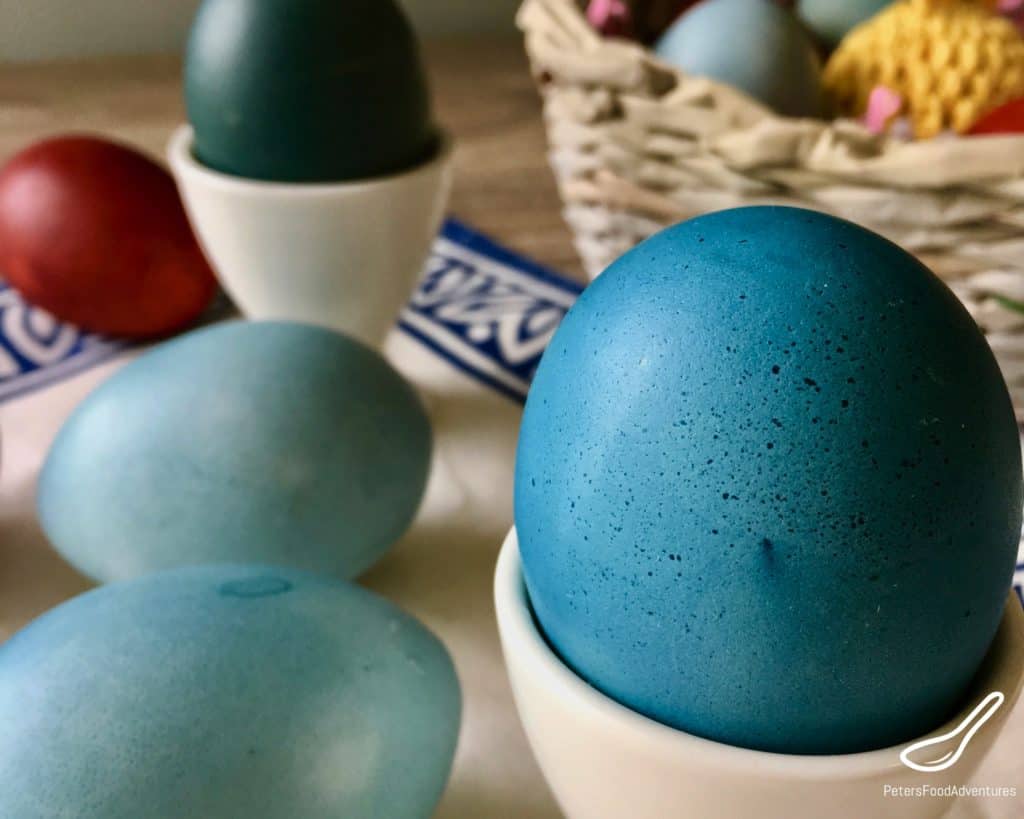
Edible Dyed Easter Eggs with Red Cabbage (Video) Peter's Food Adventures
By harnessing the power of red cabbage, a tablespoon vinegar, and a tablespoon salt, you can create beautifully dyed eggs in varying shades of blue, purple, and even green. Get ready to impress your friends and family with these vibrant creations that showcase the beauty of nature while celebrating the spirit of Easter.
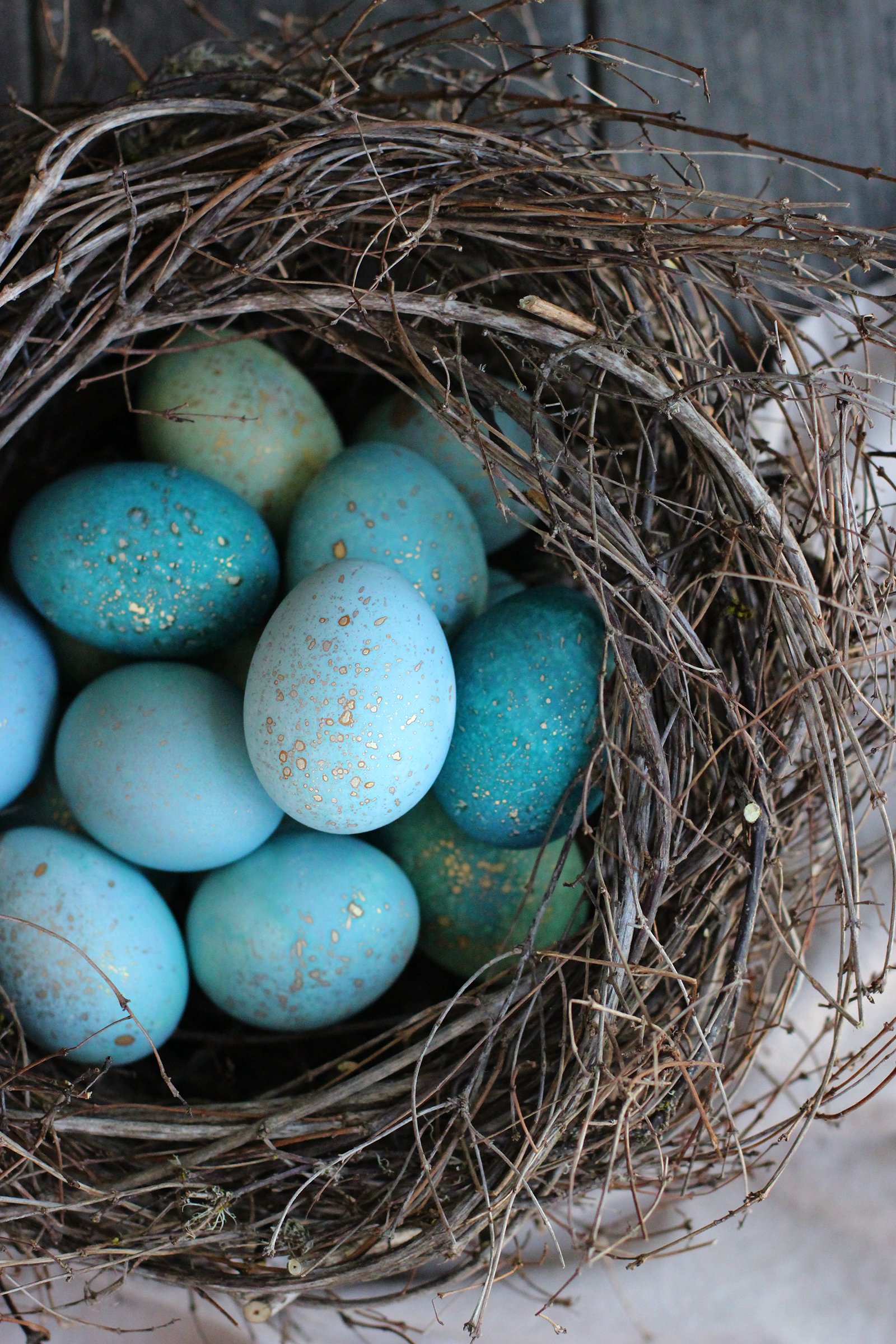
DIY Dyed Robin Eggs HonestlyYUM
Place the cabbage and onion skins into their own saucepan and with two cups of water each. Heat on high until a simmer, then reduce heat to low and continue simmering for fifteen to thirty minutes. Place the turmeric, hibiscus, butterfly pea flowers, and freshly grated beetroot into their own heat-proof containers.
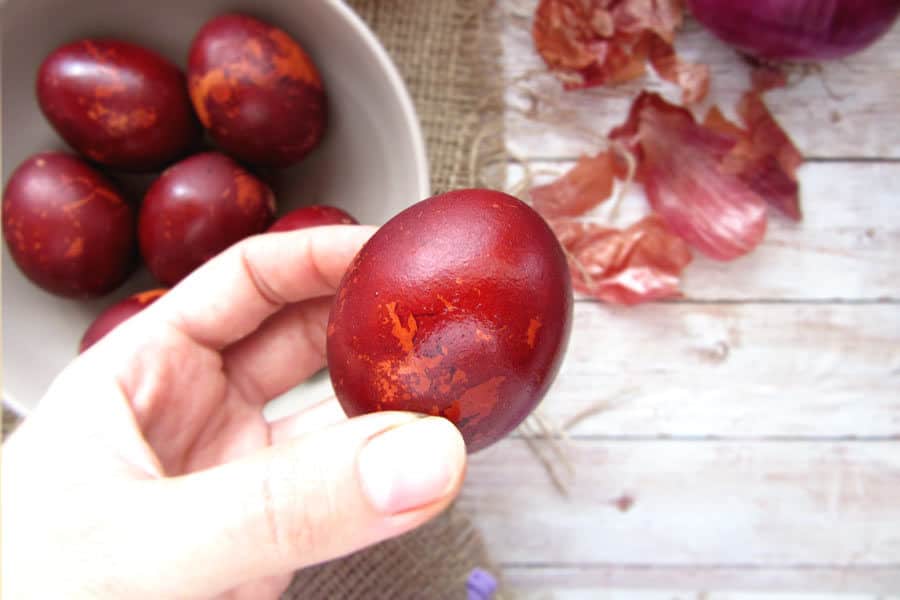
How To Dye Eggs Naturally With Onion Skins (ChemicalFree)
Naturally Dye Easter Eggs Using Beats. Here, I am showing you how to prepare the beet. Cut off most of the beet greenery and any long vines on the end. Rinse the beet well and slice in half. Just like the cabbage, boil the beet in 2 cups of water for 15 minutes. Bring to room temperature and strain out the beet halves.

Cabbage dyed eggs twineandtable
2 cups dried hibiscus flowers = lavender or indigo eggs. 2. Strain the liquid. Add 1 tablespoon distilled white vinegar to every 1 cup strained dye liquid. 3. Soak hard-boiled eggs in the dye liquid and refrigerate. (2 cups of dye liquid will dye 6 eggs.) 4. Dry the eggs and polish with a little oil to make them shine.

Marblemount Homestead Last minute Easter Eggs that are stunning and
Blue: Red cabbage reigns supreme for natural blue dyes (don't add vinegar or baking soda, just plain cabbage water). The longer you simmer the cabbage, the deeper and more cobalt blue it becomes..